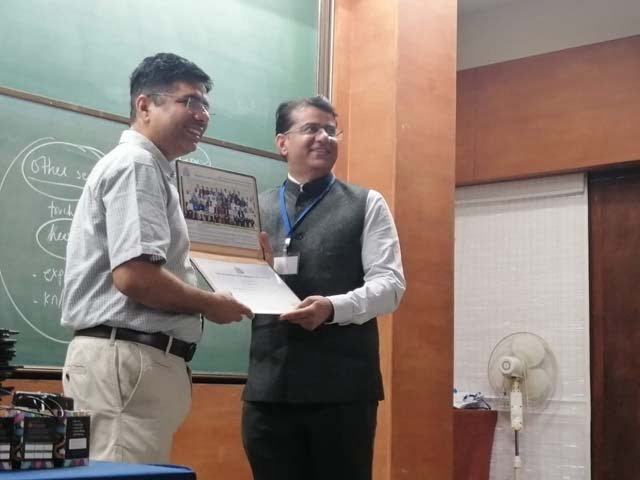4 Powerful Stotras of Lord Shiva – Meaning, Benefits & Importance
Reading Time: 3 minutes Spread the love 4 Powerful Stotras of Lord Shiva – Meaning, Benefits & Importance. भगवान शिव के चार प्रमुख स्तोत्र: अर्थ, महत्त्व…
Dr AvinashTank, is a super-specialist (MCh) Laparoscopic Gastro-intestinal Surgeon,
The pancreas is a gland behind the stomach and in front of the spine. It produces juices that help break down food and hormones that help control blood sugar levels. In type 1 diabetes, the beta cells of the pancreas no longer make insulin because the body's immune system has damaged the insulin producing cells of pancreas. In type 2 diabetes, the pancreas loses the ability to secrete enough insulin in response to meals.
The pancreas can lead to many health problems. These include

The most common cause of acute pancreatitis is alcohol intake or stones in the gallbladder. Other known causes are high triglyceride levels in the blood, high calcium levels in the blood. In some cases, cause remains uncertain despite proper investigations.
Acute pancreatitis usually begins with gradual or sudden pain in the upper abdomen that sometimes extends to the back. The pain may be mild at first and become worse after eating. The pain is often severe, constant, and commonly lasts for several days in the absence of treatment. Most of cases of acute mild pancreatitis are milder in severity ie. doesn’t have any organ damage.
Clinical symptoms are suggestive of acute pancreatitis. Blood tests are done to confirm the diagnosis. Ultrasound is advised to look for stones in gallbladder or in bile duct as a cause of acute pancreatitis. Ultrasound also assess extend of damage to pancreas, but it may be normal in initial 2-3 days despite clinical symptoms and positive blood reports. Doctors take decision after considering all points. Sometimes CECT of pancreas is advised, if there is doubt in diagnosis, or some of the complications of acute pancreatitis are suspected.
Acute Pancreatitis
Chronic Pancreatitis
Patient is advised admission and kept under observation as few cases may progress to severe form of pancreatitis despite best medical treatment. Such cases are shifted to ICU for further treatment and daily monitoring is done to assess whether complications are evolving or resolving. Based upon type of complications, there are variety of approach to manage the complications. It may be endoscopic therapy / radiological therapy / laparosocopic surgery or open surgery. The team of expert like endoscopist, interventional radiologist, Intensivist & surgeon decide the appropriate approach for treatment for given situation.
Few patients recover from complications of acute pancreatitis and manifest in due course with another set of complications. The specific complication is treated with best possible approach. Surgery approach for complications of acute or chronic pancreatitis includes necrosectomy, abscess drainage, internal drainage of chronic pseudocyst. Surgical approach for calcific chronic pancreatitis includes drainage procedure like Partington and Rochelle Lateral pancreatico-jejunostomy, Begers Procedure & resectional procedure if disease is localised in distal part pancreas.

Experience
Award & Presentations
Satisfied Families
Successful Surgeries
Reading Time: 3 minutes Spread the love 4 Powerful Stotras of Lord Shiva – Meaning, Benefits & Importance. भगवान शिव के चार प्रमुख स्तोत्र: अर्थ, महत्त्व…
Reading Time: 3 minutes Spread the love World Cancer Day: Digestive Cancer Prevention | Dr Avinash Tank, Ahmedabad. Expert Gastrointestinal Cancer Care at Dwarika Gastro Super-Speciality…
Reading Time: 3 minutes Spread the love Makarsakranti: Celebration of Astronomical Event in India. उत्तरायण (मकर संक्रांति) — विज्ञान और मौसमी प्रभाव भारत में मकर संक्रांति…
Lorem Ipsum is simply dummy text of the printing and typesetting industry. Lorem Ipsum has been the industry's standard dummy text ever since the 1500s, when an unknown printer took a galley of type and scrambled it to make a type specimen book. It has survived not only five centuries, but also the leap into electronic typesetting, remaining essentially unchanged.
